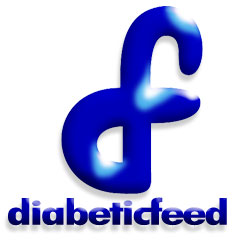 If you are looking for our book recommendations, they're all located here in one posting. Here's to healthy reading!
If you are looking for our book recommendations, they're all located here in one posting. Here's to healthy reading!
Diabetes: A Guide To Living Well
The book Diabetes: A Guide To Living Well, co-authored by Dr. Gary Arsham and Ernest Lowe begins by asking the reader to think about how much they are willing to work on their diabetes. It’s an honest question, especially for individuals who may not have been testing regularly or putting off medical appointments. Arsham and Lowe don’t berate the reader, but rather offer options to help bring control over his or her diabetes.
The different levels of control, which Arsham and Lowe have simply entitled "Intensive", "Moderate", and "Loose", are discussed in detail, and provide the reader with step by step instructions and helpful information. There is an important chapter which highlights insulin reactions, also known as low blood sugars or hypoglycemic episodes. It’s an important chapter to cover with people who might need to help in case the diabetic is unable to self-treat.
Chapters encompass almost all aspects of a diabetic lifestyle, including diet, exercise, complications, and the psychological aspects of the disease. Diabetes: A Guide To Living Well is simply written and easily understood, and is detailed enough to give the reader a good guide on their own road to diabetes control.
The New Glucose Revolution
What exactly is the Glycemic Index? It’s the listing of different types of foods, based on how quickly they digest and release glucose into the bloodstream. Carbohydrates in the food are compared to either glucose or white bread, and the food is then given a number, which ranks it on the glycemic index. Glucose (or white bread) is assigned the number 100. If a food breaks down quickly into glucose, it will have a number that is close to, or even higher, than 100.
What’s the importance of the glycemic index for diabetics? Foods that are considered to be “low glycemic” causes smaller rises in blood glucose after meals. For those individuals who struggle with post-prandial spikes, this can make a large difference in control.
Knowledge of what foods are low glycemic and high glycemic is important, but as always, it’s important to use common sense, especially if you are on a weight reduction program. When choosing between a low glycemic food and a high glycemic food, you need to look at calorie content. There is also the “glycemic load” factor, which is the effect of a total meal on blood sugars. You also need to be aware that certain foods that are raw may have a different glycemic index number than if it were cooked.
If it sounds a little complicated, it may be at first. However, there is a lot of information available on the internet and in a comprehensive book entitled: The New Glucose Revolution. There is a pocket guide to take with you to the grocery store. By making some simple changes in your eating habits, such as substituting whole grains items instead of their processed counterparts, you may find that your blood sugars will stabilize.
Diabetes Burnout
When someone is diagnosed with diabetes, they are given information about medications, diet, blood sugar monitoring, and the importance of exercise, but unfortunately, often there is nothing said about the emotional and psychological aspects of daily life. Living with a chronic disease, especially one that can affect almost every part of the body can leave most people feeling overwhelmed, angry, and confused. Even with an initial positive attitude, some diabetics feel burned out after years of testing and medication, and the frustration of unexplained blood sugars. What can you do when it just becomes too much?
Certified Diabetes Educator, Dr. William H. Polonsky, has some great advice in his book: Diabetes Burnout. He gives insight into why diabetics sometimes feel this way, and presents the reader with a game plan that is tailored specifically to each individual. For instance, if you are sick and tired of taking your blood sugars, he talks about the reasons why – and what you can do about it. Each chapter discusses, in easy to understand concepts, the ways to deal with the disease in a positive, healthy manner. If you feel that nothing you can do will help you in your daily life, this is the book for you – and if you are the friend or family member of a diabetic, this may give you a better understanding of what we go through.
Lara Takes Charge
Lara Takes Charge is written from Lara’s point of view, as a child living well with diabetes. Rocky’s inspiration for this book is close to his heart – his daughter, Lara.
Diabetes awareness is important, and it’s especially important when explaining to a child that his or her friend – or even the child is not much different than anyone else. Lara Takes Charge is a positive and delightful way to talk with children about diabetes. For children going to a new school – or going back to school – it’s a great book for show and tell, and an opportunity to let other children in the class learn something new.
Pumping Insulin
Insulin pumps have come a long way since the backpack version. Even though the pumps have become easier to use and lighter to wear, they are still machines that interact with an individual. There are times when a pump user follows all the instructions that were given by their pump instructor and their diabetes team, and still ends up with less than optimum blood sugar readings. There is an excellent reference guide called Pumping Insulin by John Walsh and Ruth Roberts, and it's on our list of recommendations.
Whether you are beginning on an insulin pump, or are an experienced pump user, there are chapters of this book that can help you. Of special interest is the section on "Special Conditions" that discuss insulin reactions, severe highs and ketoacidosis, and exercise. The book also discuss a very important concept that is crucial for all diabetics on a pump - patterns. When blood sugar levels aren't in range, examining blood sugar patterns, basal rates, and bolus information can shed some insight as to what you and your diabetes team can do.
Walsh and Roberts have included many tables and worksheets within the book to aid the reader. There's a lot of information packed into Pumping Insulin, and it's definitely a must have for any diabetic who wants to know as much as possible about a pump. On a personal note, I have actively used this book and it’s helped to improve my insulin pump lifestyle.
Medical Management of Pregnancy Complicated by Diabetes 
Diabetic pregnancies can be complicated. If you are looking for information on the care and treatement of diabetes during pregnancy, the American Diabetes Association has published Medical Management of Pregnancy Complicated by Diabetes. Please be aware that it’s part of the ADA’s clinical series for healthcare professionals, so it may be a bit intimidating for someone who has been recently diagnosed or someone who may be unfamiliar with medical terminology. Don’t let that stop you. It’s an amazing book that discusses the importance of pre-conception counseling for women with existing diabetes, as well as all aspects of diabetic pregnancies. This book is a must have for any diabetic woman who is considering becoming pregnant.







